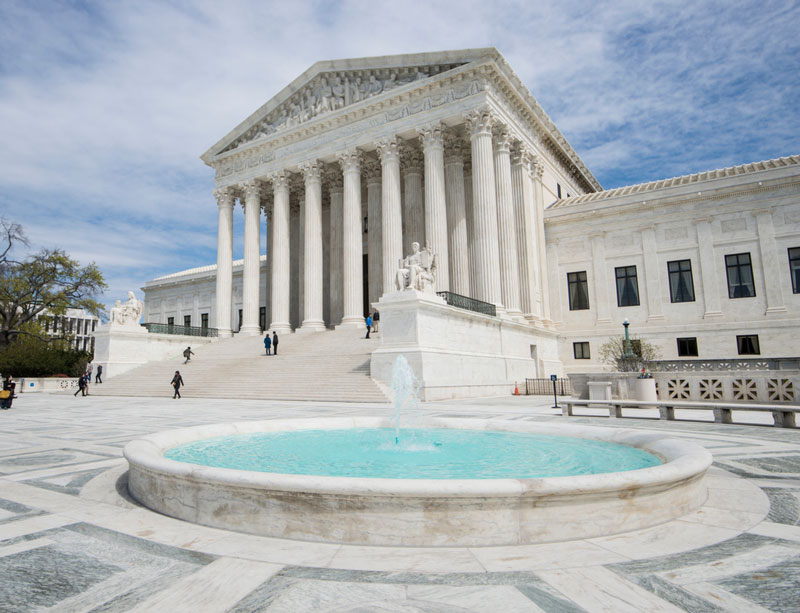Supreme Court Rules to Protect Navy Veterans in Asbestos Case

The U.S. Supreme Court ruled Tuesday that manufacturers are liable for asbestos-containing materials they did not make, distribute or install, but were needed for their equipment to function properly.
The maritime-law ruling involved Navy veterans who were not warned about the danger of asbestos insulation added by a third party to pumps, turbines and blowers aboard three different ships.
The ruling will allow cases filed originally by Navy veterans Kenneth McAfee and John DeVries to move forward against five manufacturers.
Both veterans died from cancer during the course of litigation. The deaths have been attributed to asbestos exposure, which can cause serious illnesses such as lung cancer and malignant mesothelioma.
McAfee served on the USS Wanamassa (1977-80) and the USS Commodore (1982-86).
DeVries worked on the USS Turner from 1957 to 1960.
The defendants in the case are Air and Liquid Systems, CBS, Foster Wheeler, Ingersoll Rand and General Electric, which produced the equipment used on the ships.
Manufacturers Have Duty to Warn
In most cases, the equipment was delivered to the Navy ships without containing the asbestos materials, which were manufactured and later installed by different companies, many of which no longer exist.
“This maritime tort case raises a question about the scope of a manufacturer’s duty to warn,” wrote Justice Brett Kavanaugh, who delivered the opinion of the court.
Kavanaugh explained that a product manufacturer has a duty to warn when:
- Its product requires incorporation of a part.
- The manufacturer knows or has reason to know that the integrated product is likely to be dangerous for its intended uses.
- The manufacturer has no reason to believe the product’s users will realize that danger.
This was one of the first Supreme Court cases for Kavanaugh, who was named to highest court in the United States in 2018. He was joined by five other justices in his opinion.
The equipment, when used as intended on the ships, eventually caused the release of dangerous asbestos. The manufacturers — who failed to warn users — become liable.
A district court in Philadelphia originally granted a summary judgement to the defendant manufacturers in 2014.
In 2017, a U.S. Court of Appeals for the Third Circuit remanded the case, ruling the manufacturers may face liability, sending it to the U.S. Supreme Court.
Ruling Could Help More Navy Veterans
The Supreme Court ruling should help Navy veterans throughout the country dealing with serious health issues caused by the asbestos that was once so prevalent on ships.
“This ruling is a game changer,” attorney Daniel Wasserberg of Meirowitz & Wasserberg LLP in New York City, told The Mesothelioma Center at Asbestos.com. “Hopefully this landmark decision will shift the debate in certain state courts, and maybe someday the terrible rulings on this issue will be overturned.”
Branches of the U.S. armed forces cannot be held liable for any matter in a court of law, but Navy contractors can.
Injuries at sea fall outside territorial boundaries of any state and typically come under maritime law and the Supreme Court.
Decisions often are guided by past maritime rulings.
“If the manufacturers had provided warnings, the workers on the ships presumably could have worn respirator masks and thereby avoided the danger,” Kavanaugh wrote. “The product manufacturer knows the nature of the ultimate integrated product and is typically more aware of the risks associated with that integrated product.”
The manufacturers believe they should not have been liable after delivering the products in a condition known as “bare metal” and without the components that made them dangerous.
The Supreme Court, though, ruled otherwise.
“Manufacturers correctly point out, issuing a warning costs time and money,” Kavanaugh wrote. “But the burden is usually not significant. Manufacturers already have a duty to warn of the dangers of their own products.”